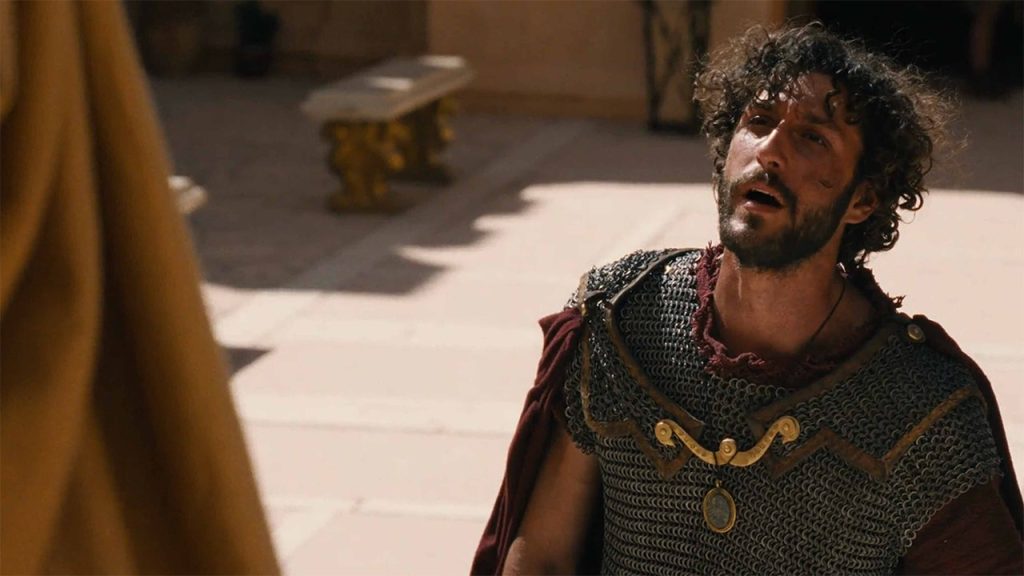St. Sebastian, an influential figure among early Christian martyrs, remains a beacon of faith and perseverance to many. Although historical details about his life are sparse, his legend has been passed down through generations, shining a light on the deep convictions he held in the face of persecution. Not formally canonized in his time, St. Sebastian was recognized as a saint long before such processes became standard. His inspiring story of unwavering faith culminated in his martyrdom under the Roman Emperor Diocletian, a period characterized by intense hostility toward Christians as the ruler sought to restore the glory of Rome through the revival of pagan religious practices. It is within this context that filmmaker Martin Scorsese has chosen to explore St. Sebastian’s story through his documentary series “The Saints,” available on Fox Nation.
Scorsese’s narrative dives into the tumultuous atmosphere of third-century Rome, where Christian worship was increasingly viewed as a challenge to imperial authority, particularly under Diocletian’s reign. The Emperor reinstated traditional beliefs and cult practices from Rome’s pre-Christian era, marking a significant shift from a previously more tolerant stance towards Christianity. As Scorsese explains, Diocletian’s vision was to revive Rome’s grandeur by enforcing worship of the pantheon of Roman gods, which in turn placed Christians in jeopardy as they resisted allegiance to anything other than their singular belief in God. It is during this period that St. Sebastian is depicted as a commander in the elite Praetorian Guard, concealing his Christian faith while outwardly serving the regime that would ultimately lead to his demise.
The story unfolds as twin brothers, Marcellus and Marcellianus, are imprisoned for their Christian convictions. Their parents, who are unaware of their sons’ faith, inadvertently pressure them into sacrificing to pagan gods for their release. In a secret meeting with the imprisoned brothers, St. Sebastian reveals his own Christian identity, encouraging them to reject the demands of the Roman authorities. His exhortation emphasizes the belief that ultimate loyalty lies with God alone and that their suffering, whether through torture or death, cannot affect their souls. “Brother, don’t you believe?” he challenges them, reminding them that true faith leads to salvation, irrespective of earthly tribulations. This powerful message of resilience resonates throughout the narrative, embodying a central theme of faith triumphing over fear.
The weight of Sebastian’s influence extends beyond verbal sermons, appearing to catalyze significant transformations even among those who serve as his captors. When the guard Nicostratus overhears Sebastian’s encouragement to the brothers, he experiences a profound change of heart, leading him to abandon his sword and convert to Christianity himself. Scorsese describes this moment as “impossible” and “unthinkable,” highlighting the narrative’s dramatic turn toward mass conversions among Christians in Rome, now centered around Sebastian. As Nicostratus courageously decides to free his prisoners and baptize his household, it is a powerful symbol of the contagious nature of faith and conviction—elements that are artistically portrayed as pivotal to the unfolding events.
However, the narrative does not rest on the successes of early Christian conversions. Soon, the tide turns against Sebastian, Marcellus, and Marcellianus, as their faith leads them toward their poignant martyrdom. The series illustrates that the path of faith often comes with substantial trials and sacrifices. Rather than succumbing silently to fate, St. Sebastian stands as a vivid embodiment of courage. Scorsese aims to convey that the stories of saints like Sebastian, laden with courage, sacrifice, and kindness, provide real-life examples of steadfastness amidst adversity, intended not only to educate but also to inspire contemporary viewers.
The broader scope of Scorsese’s “The Saints” encapsulates the experiences of various other religious figures, including Joan of Arc, John the Baptist, Francis of Assisi, and others. Over eight episodes, the series traverses 2,000 years of history, examining how these individuals embodied extreme acts of kindness, selflessness, and sacrifice in their lifetimes. By exploring such extraordinary legacies, the series hopes to underline the power of faith and the undying spirit that characterized these saints, urging viewers to reflect on the deeper aspects of faith in our modern world, much as St. Sebastian’s enduring legacy invites us to do.
Through the streaming platform Fox Nation, viewers can engage with this poignant narrative of faith, resilience, and transformation. With a focus on figures who navigated immense adversity, Scorsese’s portrayal of St. Sebastian is situated within a larger tradition of recognizing the trials faced by early Christians. These stories, filled with a spiritual truth that transcends mere historical fact, invite audiences to explore the richness of integrity and devotion that defines not only the tales of saints but also the very nature of human courage confronting the uncertainties of existence. Through the series, the hope is to reignite interest in these legacies, encouraging individuals to reconnect with the core of what it means to embody faith amidst a tumultuous world.










